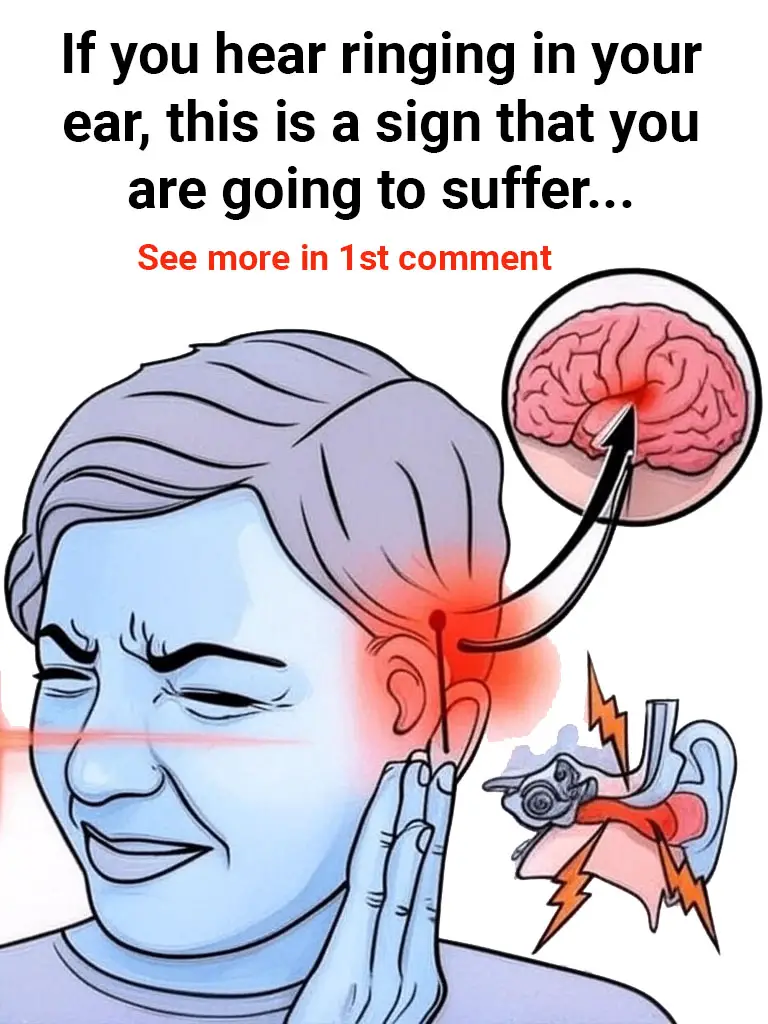
First, let me say this — if you’ve been hearing a constant ringing, buzzing, or hissing in your ears, you are not alone. I want to start with a heartfelt thank you for being here. If you’ve been living with this strange, often frustrating sound that no one else can hear, know that your experience is real. And today, I’m here to shed light on something that affects millions — a condition called tinnitus.

Understanding what’s happening in your body is the first step toward relief. And if this resonates with you, don’t forget to subscribe to our wellness updates — we send helpful tips and support straight to your inbox.
🔊 What Is Tinnitus?
Tinnitus is the perception of sound without an actual source. It’s when you hear:
- Ringing
- Buzzing
- Hissing
- Whistling
- Clicking
…in one or both ears, or even inside your head. It can be soft or loud, occasional or constant. And while it may seem like it’s all about your ears, there’s a deeper story — one that starts in your brain.
🧠 Why People Struggle With Tinnitus
Tinnitus can be deeply distressing, especially when you don’t understand what’s causing it. For many, it shows up as:
- Intermittent or constant noise
- Increased stress and anxiety
- Trouble falling or staying asleep
- Difficulty concentrating
- Emotional exhaustion
What makes it even more frustrating? Others can’t hear it, which can leave you feeling isolated. But the more you learn, the more empowered you become to manage it.
💡 Why You Should Care: Tinnitus & Brain Health
Tinnitus is not just an “ear issue” — it’s a sign that something in your auditory system (which includes your ears, nerves, and brain) is out of sync.
Here’s what the research tells us:
- When the brain lacks sound input (due to hearing loss, loud noise exposure, etc.), it may “fill in the gaps” by generating its own noise.
- This creates the internal ringing, buzzing, or hissing known as tinnitus.
- Over time, this can affect mood, memory, and sleep, leading to a spiral of stress that makes symptoms feel even louder.
🧠 How Tinnitus Affects the Brain
Here’s where it gets really interesting — and hopeful.
Your brain adapts to missing sounds by increasing neural activity in the auditory cortex (the part that processes sound). That means:
- Tinnitus is a result of brain overcompensation
- It often activates regions responsible for emotion and memory
- That’s why tinnitus can feel worse during times of stress, anxiety, or fatigue
In essence, your brain is trying to help — but it ends up making things feel worse. The good news? There are ways to retrain the brain and reduce how much you notice the sound.
🧘♀️ What Can You Do About It?
While there’s no one-size-fits-all cure, many people find relief through small lifestyle changes and brain-based strategies. Here are a few approaches that can help:
✅ Sound Therapy
- Use white noise machines, soft nature sounds, or background music.
- This helps the brain de-prioritize the tinnitus signal.
✅ Cognitive Behavioral Therapy (CBT)
- Teaches you how to manage emotional responses to the noise.
- Proven to help reduce the stress and impact of tinnitus.
✅ Relaxation Techniques
- Deep breathing, meditation, or yoga can calm the nervous system.
- Lower stress = less focus on the tinnitus.
✅ Get a Hearing Check
- Many cases of tinnitus are linked to undetected hearing loss.
- Hearing aids or auditory devices can sometimes resolve or reduce symptoms.
✅ Avoid Triggers
- Limit caffeine, alcohol, and nicotine
- Get consistent sleep
- Reduce noise exposure (especially loud music or industrial environments)
🗣️ FAQs – Common Questions About Tinnitus
Is tinnitus a sign of something serious?
In most cases, tinnitus is not dangerous, but it can be a sign of underlying issues like hearing loss or high blood pressure. Always check with your doctor to rule out anything serious.
Can tinnitus be cured?
There is no universal cure, but many people find significant relief through sound therapy, CBT, hearing aids, and lifestyle changes.
Will it get worse over time?
Not necessarily. With the right tools, many people learn to manage or even tune out their tinnitus over time.
🧩 Final Thoughts: You’re Not Alone
Tinnitus is more than just an annoying sound. It’s a signal from your brain that something needs attention — and now, you’re already one step closer to understanding it.
You are not crazy. You are not imagining things. And most importantly — you are not alone.
With the right information, support, and strategies, you can find relief and improve your quality of life.
💌 Stay Connected
If this article spoke to you, I invite you to subscribe to our wellness newsletter. You’ll get regular tips on brain health, natural remedies, and ways to live better — body, mind, and spirit.
🧠 More Articles You Might Like:
- Say Goodbye to Pain and Fatigue: The Morning Remedy You Need
- Effective Home Remedy for Long-Term Mosquito and Cockroach Control
- How to Keep Strawberries Fresh Longer: 7 Expert Tips
- Natural Sleep Aids That Really Work
💬 Share Your Story
Have you experienced tinnitus? What’s helped you cope or find relief? Leave a comment below, and let’s support each other. Your story could be the encouragement someone else needs today. 💛
Thanks so much for reading — and for taking steps toward a healthier, more peaceful life.





Leave a Reply